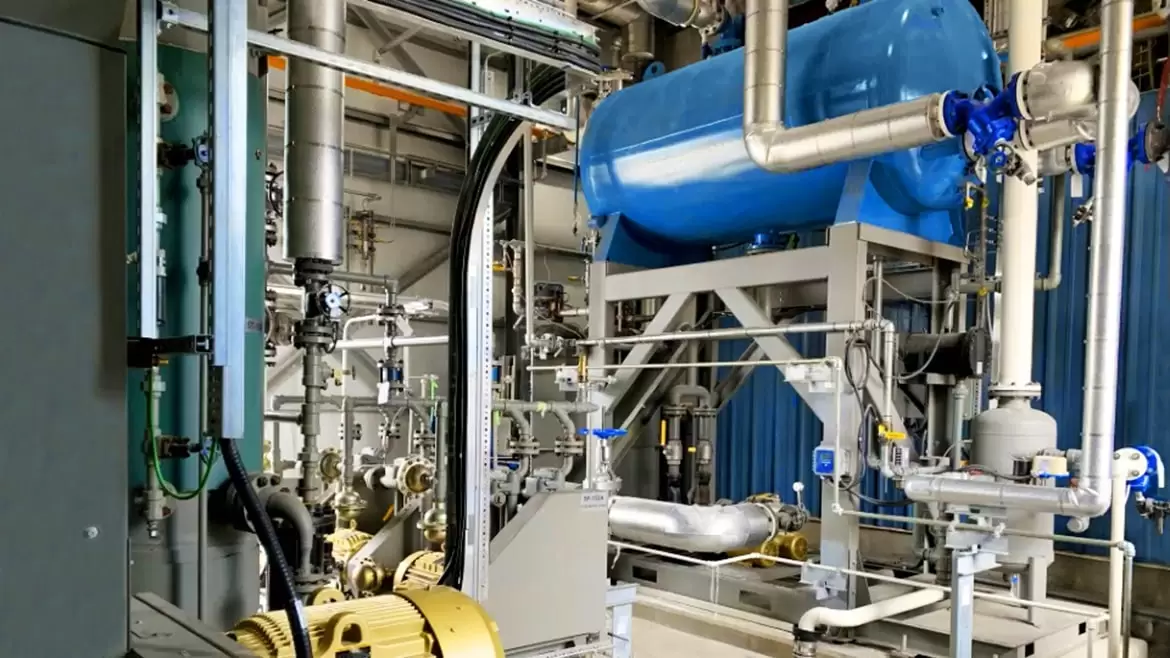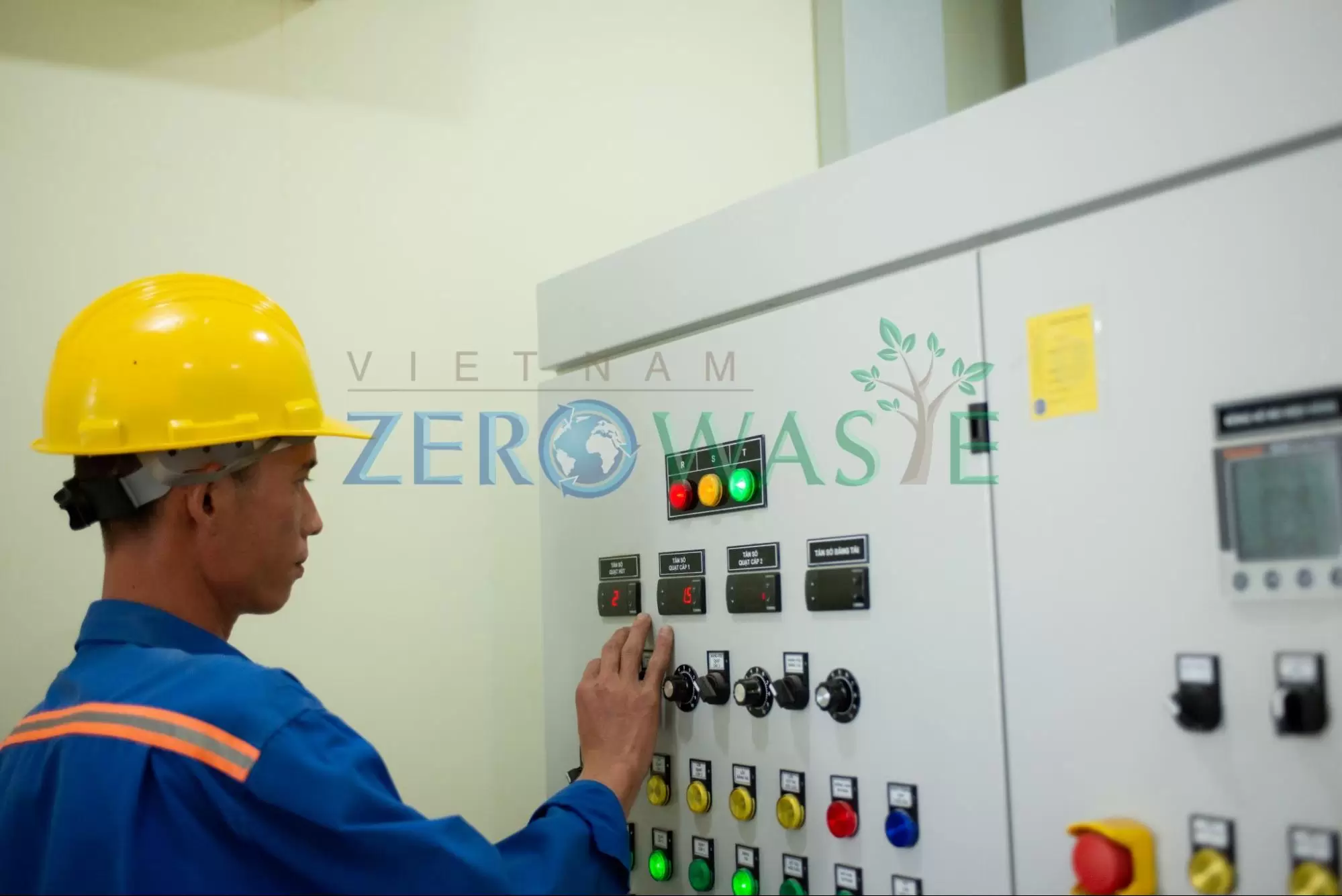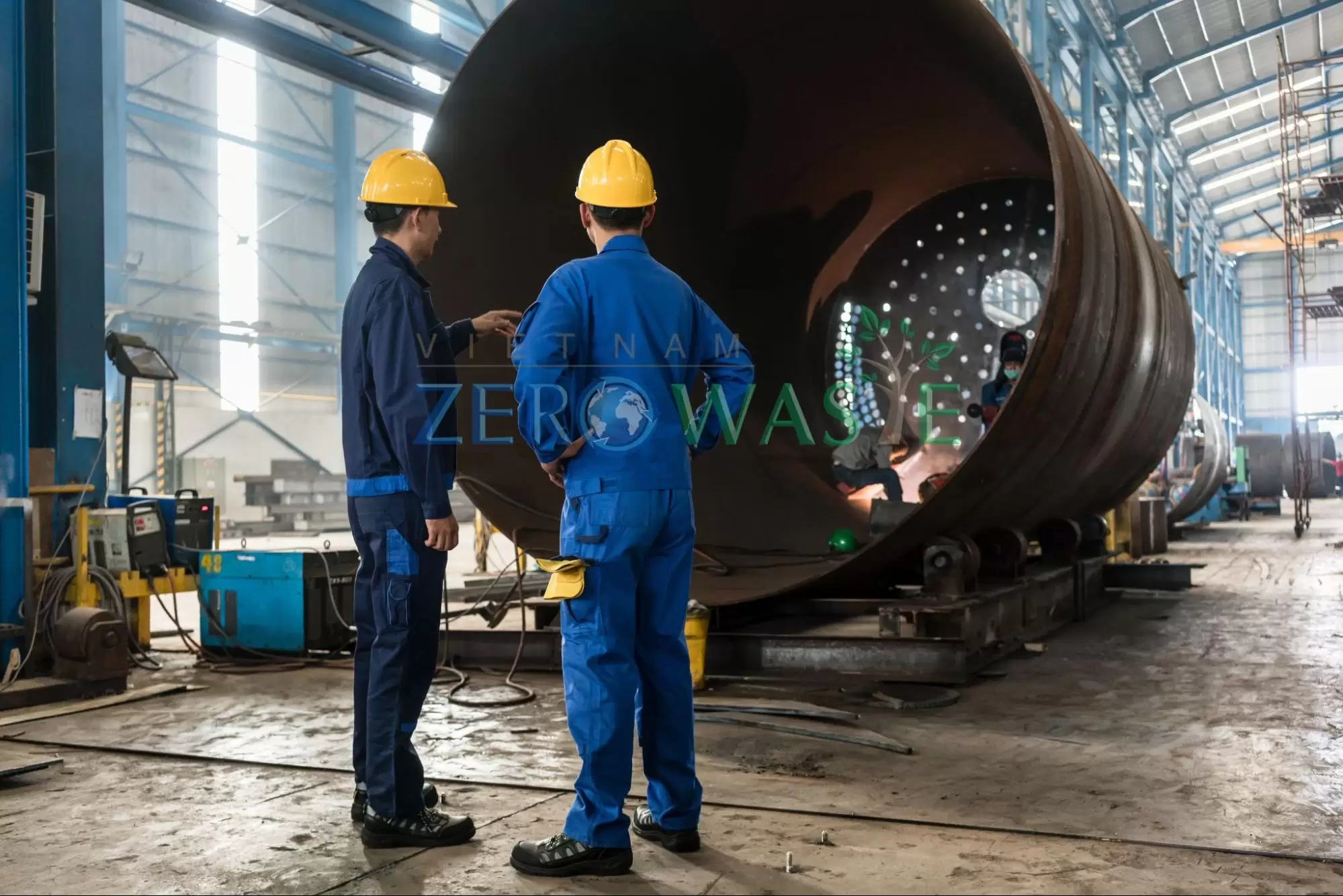

Many recent unfortunate cases of boiler accidents have proven that: ‘If boiler safety issues are not taken care of and guaranteed, this equipment will be like a time bomb, causing danger and disruption of operations for the entire manufacturing plant’. Experts have warned that: “boilers will explode when they are not operated properly”.
The following are the ‘keys’ to help safely operate the boiler and prevent unnecessary accidents:
Common Factors Contributing to Industrial Boiler Explosions
There are several factors that can lead to industrial boiler explosion incidents in factories and plants, which can pose serious threats to boiler safety. Some of the common errors and causes include:
- Improper installation of the safety valve or failure to periodically check the valve’s operational responsiveness causes the safety valve to be disabled.
- The boiler is degraded due to fuel input quality management, causing the equipment’s lifespan to not be guaranteed (using poor water quality, fuel with many uncontrolled corrosive ingredients, improper operating parameters).
- Protection automation equipment is not guaranteed and is too primitive.
- Carelessness of the Management Board and boiler operators is also the cause of accidents and boiler explosions.
- Employees handle incidents incorrectly or do not have clear rules and procedures for handling serious incidents.
Essential Equipment for Ensuring Boiler Safety
- Safety valve: Installed in accordance with required state standards (TCVN) on boilers and pressure equipment, sufficient in quantity, quality, and installation location. Safety valves must be inspected and sealed annually by competent authorities. Boiler operators are strictly prohibited from adjusting or changing the operating parameters of the safety valve. The operator periodically checks the safety valve’s performance to ensure equipment availability.
- Pressure measuring and control equipment: Each boiler and pressure equipment cluster must be installed with mechanical pressure gauges (at least 2 gauges for 1 boiler in a position that is easy to continuously observe). and compare uniformity), pressure sensor device for the control system to receive continuous protection signals, pressure relay to stop the entire system when the protection pressure is exceeded.
- Active steam release valve: Used so that operators can proactively release steam from the furnace to the environment (in a safe space) to actively control the steam pressure in the furnace in cases where the pressure is exceeded. unexpected.
- Equipment for controlling working and protective water levels: Includes lighted glass to observe water level (at least 2 lighted glass is required for each boiler to observe and cross compare the accuracy of the equipment), Water level sensing device so that the control system can automatically: start and stop the water supply system to ensure there is always enough water for working equipment, start additional water pumps when the main working pump encounters problems. malfunction or insufficient capacity, stop protecting the entire system when the water level is lower than the allowable working level.
- Water supply pump: Must have sufficient capacity, pressure, and appropriate flow to supply water to the boiler during operation. There should be at least 2 supply pumps (1 running – 1 standby) for a boiler system to ensure continuous response without interruption in water supply.
- Water quality assurance system: Because the boiler is a continuous steam generator, the amount of purified water that evaporates leaves residue inside the furnace, affecting the lifespan of the boiler equipment. The water quality assurance system for the boiler includes:
- Source treatment: Depending on the capacity, pressure, and steam flow of the device. The boiler needs to be treated with dissolved impurities in the water before it is fed into the boiler to reach the allowable concentration value. Basic systems that need to be considered may include: Pre-filter, softener to remove limestone content in feed water, RO treatment system to finely filter components, chemical addition system to Inhibits/neutralizes components.
- Treatment during the process: The boiler should have a system of valves and scale discharge lines properly arranged to periodically remove remaining scale in the boiler, ensuring water quality inside the furnace.
- Other sensor devices: Temperature sensors on the smoke path to diagnose problems with the heat exchange system inside the furnace, water level sensors of supply, deaeration, and intermediate water tanks to control the continuous water supply level, equipment current sensors to ensure the prediction of equipment problems, other sensors to assist operators and managers in quickly diagnosing and troubleshooting problems and exactly.

Equipment required to meet boiler safety
Tips for Getting Started with a Boiler
- It is essential to ensure that the hydraulics are performed at the specified pressure prior to starting the boiler.
- Before starting the boiler, make sure to verify that the pump inlet is open.
- Consider installing an automatic ash removal system, like a boiler bypass valve, to effectively prevent the accumulation of ash in your furnace or other equipment. Accumulation can lead to the obstruction or overheating of boiler components, resulting in various issues.
- It is important to prime the pump before starting the boiler.
- Prior to initiating the boiler, it is imperative to thoroughly examine and rectify any loose or faulty connections.
- It is essential to have trained and technically qualified boiler operators in order to operate the boiler.

Important considerations when beginning the boiler
Ensuring Boiler Safety: A Must for Every factory
Experts suggest that businesses can prevent and receive timely warnings about boiler explosions by implementing the following measures:
- Always ensure that the boiler is operated within its rated pressure and regularly inspect the safety valve and fusible plug to ensure safe operation.
- Regular cleaning of holes is important.
- It is important to install the tank before pumping and thoroughly check the operation to ensure that impurities are removed from the boiler feedwater. This will help prevent any potential clogging of the supply pipes.
- It is essential to treat the water prior to entering the boiler to prevent the accumulation of dirt on the boiler shell.
- Regular inspections and maintenance of the boiler, along with its fittings and valves, are essential to prevent potential damage and cracks.
- It is important to ensure that the boiler vents are not obstructed by any objects like cloth or other materials.
- It’s important to thoroughly inspect for any potential leaks in areas that seem suspicious.
- For optimal boiler performance, it is important to adhere to the provided operating instructions.
- Regular cleaning and proper isolation from the boiler are essential for maintaining the control system’s performance and preventing overheating.
- Ensure that all heated components of the boiler are properly insulated.
- It is important to avoid touching uninsulated parts with bare hands.
- It is crucial to ensure the proper functioning of the primary and secondary fans and regularly check all moving parts for smooth operation.
- It is essential to regularly clean equipment in the furnace area.
For optimal motor performance, it is important to avoid exceeding the frequency of the inverter beyond 50 Hz. - It is important to ensure that the pressure switch, safety valve, and pressure gauge are suitable for the application.
Steps to Regularly Check Boiler Safety
- Regularly clean boiler tubes to prevent the buildup of ash or dirt both inside and outside the tubes. Not properly addressing this issue can have a negative impact on the boiler’s performance, potentially resulting in overheating and leaks in the pipes.
- Ensure that both primary and secondary air conditions are properly maintained while fueling.
- Regularly monitor burner return pressure and line pressure to prevent potential heat hazards.

Boiler safety inspection measures
Above is information about boiler safety, an extremely important information to prevent fires and explosions. If you want to own a boiler at a trust-worthy unit, please contact us for timely support.
Vietnam Zero Waste:
- Address: B1-30, My Phu 3C area, Phu My Hung, District 7, Ho Chi Minh City
- Phone number: +84 975 324 488 (Mr. Van) or +84 975 337 933 (Mr. Khang)
- Email: info@vietnamzerowaste.vn
- Website: https://vietnamzerowaste.vn



